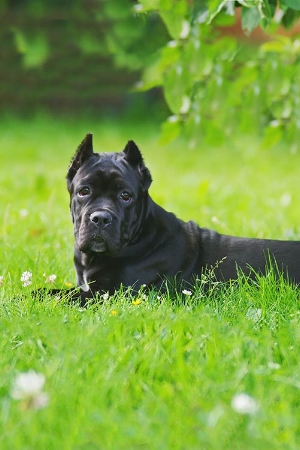For the love of the Furry children
For thousands of years, humankind has taken the loving role as guardian to the furry creature large and small.
Today for some families pets have taken the place of having biological children, and their loss can be as devastating as losing someone close.
Today we are going to talk about some common backyard plants which are toxic to cats & dog, or our furry children.
Toxicity levels and symptoms can vary in each plant; many toxic plants are irritants: they can cause inflammation of the skin, mouth, and stomach some causing vomiting, or diarrhea, and even seizures. Other poisonous plants may only affect a particular organ like the kidney, liver, or heart which can lead to lifelong health problems or even death.
If a plant is poisonous, assume all parts of the plant are poisonous!
Prevention is always the best way to deal with curious critters and doing a fact check before any planting may save you both a world of suffering.
After all these guys are our best friends and we couldn't imagine a day without them.
"No-nos" for Cats:
Aloe vera
Amaryllis (Amaryllis sp.)
Autumn Crocus (Colchicum autumnale)
Azaleas and Rhododendrons (Rhododendron sp.)
Belladonna (Atropa belladonna/Nightshade)
Bleeding hearts (Dicentra spectabilis)
Castor Bean (Ricinus communis)
Chrysanthemum (Chrysanthemum sp.)
Cyclamen (Cyclamen sp.)
Daffodils (Narcissus)
English Ivy (Hedera helix)
Foxglove (Digitalis purpurea)
Golden chain (Laburnum Watereri)
Hydrangea
Iris
Kalanchoe (Kalanchoe sp.)
Lilies (Lilium sp.)
Lily-of-the-valley (Convallaria majalis)
Marijuana (Cannabis sativa)
Milkweed
Morning glory (Ipomoea tricolor)
Oleander (Nerium oleander)
Peace Lily (Spathiphyllum sp.)
Pothos (Epipremnum aureum)
Sago Palm (Cycas revoluta)
Spanish thyme (Coleus Ampoinicus)
Star of Bethlehem
Tulip and Narcissus bulbs (Tulipa and Narcissus sp.)
Yew (Taxus sp.)
"No-nos" for Dogs:
Allium
Aloe vera
American holly (Ilex Opaca)
Andromeda (Pieris japonica)
Angel's trumpet (Brugmansia)
Apple seeds of any kind
Azalea genus (Azaleas and rhododendrons)
Baneberry (Actaea)
Begonia
Belladonna (Atropa belladonna/Nightshade)
Bird of paradise (Strelitzia reginae)
Bittersweet (Celastrus orbiculatus)
Bittersweet nightshade (Solanum dulcamara)
Bleeding hearts (Dicentra spectabilis)
Bloodroot (Sanguinaria canadensis)
Boston ivy (Parthenocissus tricuspidata)
Boxwood (Buxus)
Burning bush (Euonymus alata)
Castor bean (Ricinus communis)
Clematis
Creeping Charlie (Glechoma hederacea)
Daphne
Elephant ears (Colocasia)
English ivy (Hedera helix)
Foxglove (Digitalis purpurea)
Golden chain (Laburnum Watereri)
Hosta
Hyacinths (Hyacinthus orientalis)
Hydrangea
Iris
Jack-in-the-pulpit (Arisaema triphyllum)
Lantana
Lenten rose (Helleborus orientalis)
Lilies (Lilium)
Lily-of-the-valley (Convallaria majalis)
Mayapple (Podophyllum peltatum)
Mistletoe (Viscum album)
Monkshood (Aconitum)
Morning glory (Ipomoea tricolor)
Mountain laurel (Kalmia latifolia)
Mums (Chrysanthemum morifolium)
Oak trees (Quercus; leaves and acorns poisonous to dogs)
Oleander (Nerium oleander)
Privet (Ligustrum)
Rose of Sharon (Hibiscus syriacus)
Snake lily (Amorphophallus konjac)
Tulips (Tulipa)
Wild Mushrooms
Wisteria
Yarrow (Achillea millefolium)
Yellow bird of paradise (Caesalpinia gilliesii)
Yellow dock (Rumex Crispus)
Yew bushes (Taxus)
Consider growing some of these plants up high in a hanging basket.
If you see your cat or dog eating a plant and you are uncertain if it is poisonous, or if you suspect your buddy ate such a plant within the past 1 to 2 hours, you can do the following before you take them to your veterinarian:
Remove any plant material from the hair and skin.
If it is necessary, you can wash the cat/dog with warm water and a small amount of non-irritating dish soap.
The identity of the plant is crucial for determining treatment. If you don’t know what kind of plant it is and you can bring it with you, do so. Veterinarians don’t receive much training in plant identification, but every effort needs to be made to identify the plant. If your cat has vomited at all, try to collect some it for the doctor.
IMMEDIATE CARE:
Call the Pet Poison Helpline at 1-855-213-6680.
If you need help in choosing new plantings, please contact us at Kaleidoscope
Anna M.


